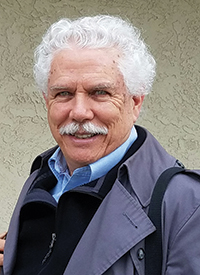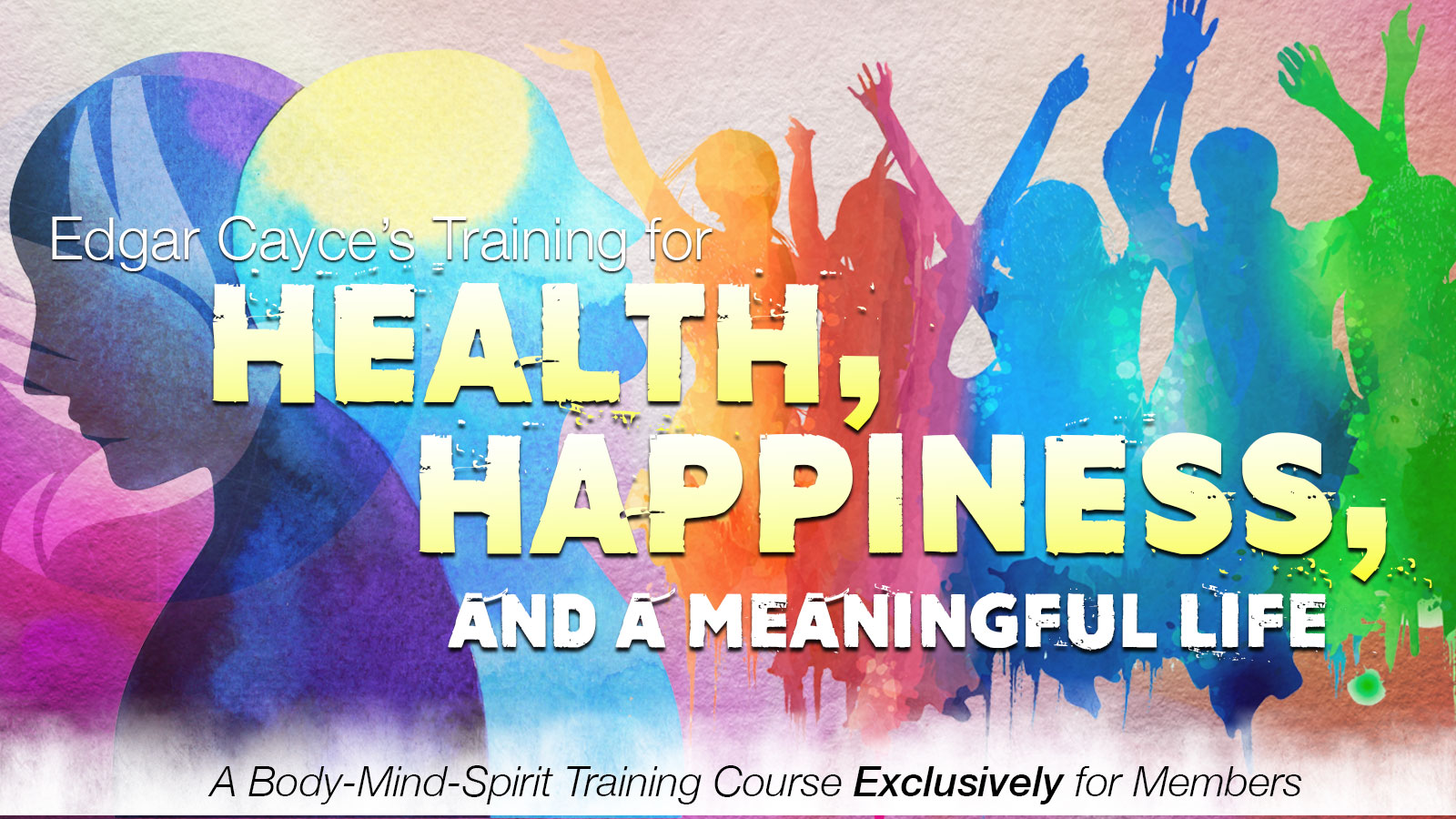Wisdom then is the divine love made manifest in your daily conversation, your daily advocation, your daily acts as one to another.
- Edgar Cayce Reading 262-104
Cayce often used the word "manifest," meaning that we must make "divine love" a living expression in our daily thoughts, words, and actions. We can't just think about how nice divine love is, we have to use it, be an expression of it!
What is divine love? To answer this question let's begin with Jesus' statement: "Greater love has no one than this, to lay down one's life for his friends." (John 15:13) Jesus adds this insight: "Most assuredly, I say to you, unless a grain of wheat falls into the ground and dies, it remains alone; but if it dies, it produces much grain." (John 12:24) Cayce helps us with these teachings by adding the following: "Less and less of personality, more and more of God and Christ in the dealings with the fellow man." (254-92) "Become less and less selfish, and more and more selfless in Him." (262-29)
Cayce goes on to teach that us that we need to walk with Him in prayer, in meditation, so that our expressions of divine love are true and pure, not artificial version of ourselves. (262-38)
Here's another of Cayce's teachings on this subject:
The activities should come to be less and less for self, but more and more that self may be the channel through which the Glory of the Father may be manifested in the earth. Then, the activities of self [should] become less and less towards the glory of self…. For being one with the Father, even as He has given, 'As you abide in me and I in the Father,' then there may be that Glory, that consciousness of the oneness that you did occupy before your advent [birth] or before the world was. Even as He prayed, 'Now, glorify thy son, that he may have the glory that was his before the worlds were.' [Behave] you yourselves like the children of the Father, knowing that His love, His Glory, abides with those who love His ways, that keep His commandments, that GLORY in the Cross and in a service to their fellow man.
- Edgar Cayce Reading 262-93
Personally, as I set aside many of my personal urges, desires, and longings out came latent spiritual abilities from within me, like intuition and synchronistic events. Also, I noticed more spiritual opportunities around me. Having divine love flowing with me and through me is a treasure that the world doesn't know well. I felt so much better, even when things were not going well or were very challenging, there was peace within me. I felt like the captain of a great sailing ship tacking through a storm but maintaining my course, knowing that I would eventually reach that harbor that my soul longs to visit again – that heavenly condition that I knew before the world was.
In his opening discourse on wisdom Cayce asked us to be advocates for those who are lost or stumbling. Advocacy in all its forms seeks to ensure that people, particularly those who are most vulnerable in society, or who have lost their way, have their innate divinity defended and safeguarded. We need to carry in our hearts and minds that even the lost have that hidden child-of-God ember inside them. The divine love that we carry in us may be able to help them keep their ember warm, or hopefully, flame it into the wonderful fire of the true Spirit. The apostle Peter wrote: "Above all things have fervent love for one another, for love will cover a multitude of sins." (1 Peter 4:8) John adds to this: "Beloved, let us love one another, for love is of God; and everyone who loves is born of God and knows God." (1 John 4:7)
Remember, actions speak louder than words. We have much encouragement for action. Consider this from the disciple Paul: "Not the hearers of the law are just in the sight of God, but the doers of the law will be justified." (Romans 2:13) And, the apostle James wrote: "Be doers of the word, and not hearers only." (James 1:22) The apostle John also wrote about this principle: "Dear children, let us not love with words or speech but with actions and in truth." (1 John 3:18)
Many humans throughout history have discovered this truth. Here are just a few quotes that express what humanity has learned about actions:
- Words are from the lips, actions are from the heart.
- A tongue doesn't get things done.
- A promise is a cloud; fulfillment is rain.
- You do not write your life with words but with actions.
- Words may show a person's wit, but actions his meaning.
- Well done is better than well said.
How right-on are these classic statements by those who have gone before us, but left their insights to help us? To think a certain way, to speak a certain way is laudable, but to act a certain way reveals the true heart of a person.
One of my favorite Sci-Fi writers is Isaac Asimov. He wrote and edited more than 500 books and an estimated 90,000 letters and postcards! He once observed a deep truth: “The saddest aspect of life right now is that science gathers knowledge faster than society gathers wisdom.” Albert Einstein added: “Any fool can know. The point is to understand.” For wisdom to occur, knowledge must be applied; it must be used in our activities so that we truly feel it and know it in our bones.
The great Chinese philosopher Confucius taught: “By three methods we may learn wisdom: First, by reflection, which is noblest; Second, by imitation, which is easiest; and third by experience, which is the bitterest.” Oprah, having lived with much suffering before her fame, said: “Turn your wounds into wisdom.” We often gain wisdom through difficulty.
Cayce also taught this in many of his discourses. Here's one of them: "Even though He were the Son yet He learned obedience through the things which He suffered." (3382-1) Cayce also stated this: "Know that sorrows, shadows, disappointments, have their place in the experience of each soul. Also know that even though HE were the Son, He learned obedience through the things which He suffered; even as you, in your endeavors, as you draw nearer to Him – not holding grudges, not finding faults, not holding malice, but rather in patience serving a living God!" ( 2280-1)
In my spiritual journey I can testify that despite my heart's love for wisdom I learned much of my wisdom at the "School of Hard Knocks." Herman Melville, author of the classic Moby Dick, wrote: "Not till we know, that one grief outweighs ten thousand joys, will we become what Christianity is striving to make us." (from his novel Redburn) Cayce often affirmed the need to take up our self-sacrificing crosses that we must bear, BUT he gave us a key to lighten these burdens: "If these are held continually as crosses, or as things to be overcome, then they will remain as crosses. But if they are to be met with the spirit of truth and right in their own selves, they should create JOY; for that is what will be built. For, the Father of light has never failed man that has cried in earnestness unto Him. It is when individuals have desired their own way that the SOULS have suffered in the sons [and daughters] of men." (552-2) Here is where divine love enters in as a key to lifting life from a burden to a joy. Earthly struggles may be lightened when heavenly influences are invited to help us by earnestly seeking heavenly help! This is not only true for ourselves but also for those we pray for – heaven hears our prayers for others when we earnestly pray.
The more we apply divine love, the more we gain wisdom.
This blog is part of our 2019 Enlightenment Series. Members can access all of the available material, which includes an online video and downloadable monthly lesson, in the Member-only section of our website at EdgarCayce.org/members. Not a member? Join now.







